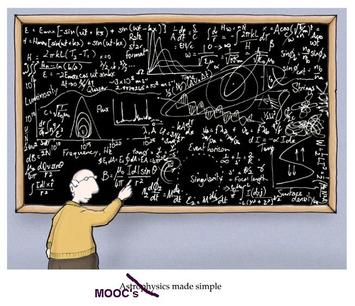Next february will be published the new Horizon Report HE. About the technologies to watch in Higher Education for the next years. In this edition preview MOOC’s and Tablet computing are on the list to keep an eye this year. Maybe is a ‘late’ prediction?
On 2012 Mobile Apps were on the list, Tablet computing too. Any changes on Mobile Apps? Of course, this year was a great development of an tremendous amount of apps for HE and now almost every university has her platform and are encouraging apps use thought they students and teachers.
This year, with MOOC’s where other finalists and my beloved Flipped Classroom were in there.
Defined on the ‘first round’ Horizon document as: ‘The flipped classroom model is part of a larger pedagogical movement that overlaps with blended learning, inquiry-based learning, and other instructional approaches and tools that are meant to be flexible, active, and more engaging for students’. The idea of flipped classroom is a sweet candy and now, everyone publishing no matter what on the web is saying they are on that. ‘I put that on the web because I’m on flipped classroom, bla bla bla’. Okey, you are giving multimedia-audiovisual-cool content for the students to consume at home… but, what about what to do in the classroom? to publish the coolest thing on the Internets doesn’t helps the teacher like Wikipedia does not in the doctor-patient relationship today.
On MOOC’s they are other typical mistakes: the most common is that MOOC’s are open. Some think they are Open in all the means and it’s very hopeful to believe that universities are engaging freedom on the Internets, but reality is not that nice. MOOC’s are the experiments to find a global solution to a business problem. How to transform HE to a commodity.
Manuel Castells claim in a recent UNESCO-Chair Seminar:
Tremendous market pressure is to destroy universities to transform it into a commodity. Oligarchs are brutal and ignorants and they buy universities as they buy football clubs! We have to preserve universities from the river of pirañas who want to sell them by pieces.
My first impression with the list this year, I insist, is that MOOC’s and Tablet computing for learning purposes are already in development and the Horizon predictions are coming late. But, a close reading of the preview published give us a key of understanding why are MOOC’s there: ‘The pace of development in the MOOC space is so high that it is likely that a number of alternative models will emerge in the coming year’.
The MOOC’s are not a new system approach to HE, from 2008 to now they were largely developed and you can find hot new ideas to continue to experiment all the different aspects involved on eLearning and infinite audiences. From flipped-classroom didactic methods to peer evaluation of the homework passing through how the teachers interact with the students (if they do) or how to deal with discussions moderation or plagiarism. But what it will be something to watch this year is how different models will coexist and develop.
Technological problems are being resolved, even most of the pedagogical theories about e Learning are being tested and improved now. But.
Every model will appear being a confirmation of the problems asked for years in HE. What about the future of accreditation? is a valid academic approach the Ethics in law’s Stanford course in the context of the EU multicultural legal system standards? Students can build a curriculum based on MOOC’s if they are recognized by prestigious universities? What are the market value of MiT degrees if everyone everywhere every moment can take a course and repeatedly try again and again to succeed? will peer evaluation ensure academic quality standards? or will push down different cultural approaches to a new idea? massive[collective]intelligence will tend to be uniformant? or automated systems will be able to detect talent?
They are lots of questions to answer. Lots of experiments to conduct on MOOC’s. But in what way? to find a Business solution to speculate with education or to develop new ways to get freedom.
Remember:
Cross-posting with #LibTechNotes

Pingback: Finally the MOOC’s on the Horizon HE report. Late? | Easy MOOC | Scoop.it·
Pingback: Finally the MOOC’s on the Horizon HE report. Late? | ELearning | Scoop.it·
Pingback: Finally the MOOC’s on the Horizon HE report. Late? | Learner's perspective | Scoop.it·
Pingback: on MOOC’s [& Libraries] | i don't look like a librarian!·